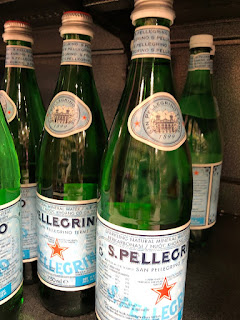 |
| All mine |
My wife and older boy's birthday is next week followed by my younger boy's birthday at the end of January. In between we have cousins, nephews and nieces celebrating birthdays and Chinese New Year after that.
For those of you who are done with training and racing, it must be nice relaxing and recovering both physically and mentally. It's also a good time to take stock of your season, to reflect and review so you can learn from it and do better next season.
Hopefully, you haven't been like me (eating too much) and piling on the pounds. I read about the "what the hell" effect which describes the the cycle where you indulge (and eat too much), regret what you've done and then go back for more.
 |
| Lots of jelly still ...... |
You definitely don't want the whole of this period to be a long "what the hell", if not it will take you a fair bit of time to regain your previous fitness levels.
I find it helpful during the holiday period to just do something first thing in the morning. A short run, a spin on the stationary bike or some weights is usually what I do now. Even if I do over indulge, I know that I'd already done some exercise to help my overeating.
Don't be dismayed that your weight has gone up during this period. Think of it as having increased glycogen (carbohydrate) stores that you can use on your next long run/ bike session.
Those potato chips or crisps (or other Christmas goodies) that you've snacked on also contains salt. Consumed in excess, salt causes more water to be absorbed into your system. That excess water can also show up as extra weight when you weigh yourself. The good news is extra water is easier to lose than fat.
Lack of sleep from family gatherings, office parties etc can have a impact on your weight too, Research shows that lack of sleep makes you eat more. Since you've trained all year round it's hard to lose everything that you've built up just don't overdo it.
While I was still racing, I never train for up til two weeks after my racing season ended. Yes, two weeks of no cycling, running or swimming to recuperate. I think of the rest period as taking a few steps back so I can move forward over the new year.
Then I'll pick a date on which I'll start to train again. I don't expect to be at the same level, physically or mentally. The time off usually makes my legs "start to itch" so I know I'm ready to start training again.
This is the last post for 2018, thank you for reading and Happy New Year to all.
References
Polivy J and Herman CP (1985). Dieting And Bingeing: ACausal Analysis: Am Psych 40(2). 193-201. DOI: 10.1037/0003-0666X.402.193.
Prinz P (2004). Sleep, Appetite, And Obesity- What Is The Link? PLos Med. 1(3): e61. DOI: 10.1371/journal.pmed.0010061.














